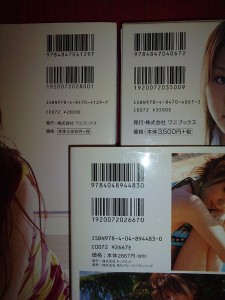International Standard Book Numbers (ISBN) are numerical sequences issued as book identifiers. They are required to publish and distribute a book. They consist of thirteen digits that are used to identify the title, author, edition, binding, and publisher of a given work. They are unique to each book and each variation of that book.
They are country specific, meaning that an agency in the nation in which the book is published is responsible for issuing ISBNs. In the U.S. the only company authorized to do so is RR Bowker.
In order to purchase ISBNs you must create an account with Bowker. ISBNs are expensive. A single number costs $125 dollars, but you can buy them in bulk which drops the price considerably, e.g. 10 numbers cost $295 dollars and 1000 cost $1000 dollars. If you choose to buy in bulk, the company will store your unused ISBNs until such time as you need them.
Bowker also sells barcodes which are used with hardcover and paperback editions.
Each book and/or variations of that book, except reprints, require a different number. This means that a hardcover, paperback, large print, and audio books of the same work would all require different ISBNs. This is also true for new editions and successive books in a series. In no case may you use the same number for different versions of the same work, e.g. paperback and audio. See https://www.myidentifiers.com/help/isbn for a listing of what products require numbers.
When you select a POD publisher to print your book, you will be required to provide an ISBN. If you do not have one, most POD companies will provide one for you, usually at a nominal cost ($10), sometimes for free. They can do this because they buy in bulk. If you use the ISBN they provide, they are credited as your publisher.
You will notice that ebooks are not mentioned in the above link. Bowker does say on its website that ebooks require an ISBN. However, some authorities on the subject question that assertion. Bowker is, after all, in the business of selling numbers.
Many (most?) ebooks do not have an ISBN. Their authors use the numbers that their POD company supplies. Each company has its own system of assigning tracking numbers. Amazon, for example, does not require an ISBN for its ebooks. It assigns its own 10-digit ASIN (Amazon Standard Identification Number). Barnes and Noble uses a similar system. They do not require an ISBN either, but in this case they assign a 13 digit BN number. Apple’s iBookstore, requires an ISBN for all titles including ebooks.
There are several circumstances where you might need, or desire, an ISBN for your ebook.
- As mentioned in the previous blog, you will have to provide your own ISBN if you have created your own publishing company and want your ebook credited to your company.
- If you have any intentions of selling your book in another country you will be required to have an ISBN.
- ISBNs are the ultimate tracking device. To insure that all your royalties are credited to your account, it is a wise idea to assign a number to each variation of your work including ebooks.
- Your book will have a better chance of being found by search engines with an ISBN.
- If you want to maximize your sales by selling your book through multiple retailers you may need an ISBN. This is a murky area with differing viewpoints. Some “authorities” on the subject state that you need a separate number for MOBI, ePub and PDF formats because end users need to know whether the e-book that they are purchasing will work on their device.
The following information is taken directly from the CreateSpace website. If Amazon assigns your book an ISBN, you cannot use the ISBN with another publishing platform. AND, with a custom ISBN, you cannot use the ISBN with another publisher. AND, for libraries and academic institutions, you must have a CreateSpace assigned ISBN.
If you do decide to apply an ISBN to any of your books, outside of the POD realm, it is up to you to complete the process. You MUST return to your Bowker MyIdentifiers account to enter the title, edition, binding, publisher, etc for each book so that the books information is tied to the correct number. This is how the rest of the world will find your book.
You will also want your book listed in the Bowker’s Books In Print database. An ISBN gives you this ability, and will make it easier for search engines to find your book. You must make sure you are listed there.
The ISBN is placed on the copyright page of the book, including ebooks.
The call is yours to make. Yes, ISBNs are expensive and the responsibility of applying all the necessary information to link your books with your numbers lies with you, but there are advantages as outlined above. My take is that assigning ISBNs to each variation of your books is a good investment if you desire to maximize your book’s exposure.![]()






